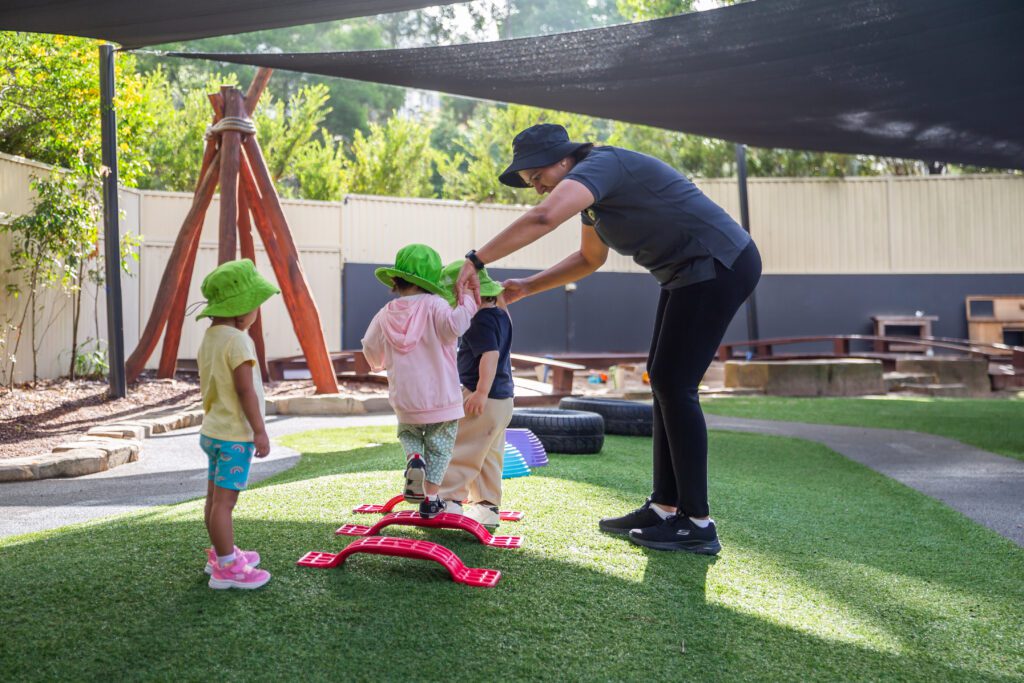
Gentle Steps to Sharing: Helping Toddlers and Preschoolers Learn Turn-Taking
If you’ve ever found yourself caught between a tug-of-war over a toy truck, you’re not alone. Sharing is a big ask for little people—but it’s also an essential social skill that grows with time, guidance, and practice.
At Papilio Early Learning, we understand that toddlers (aged 1–3) and preschoolers/kindergarteners (aged 3–5) are still learning how to navigate their emotions, express themselves, and connect with others. Sharing and turn-taking don’t happen overnight—but with gentle support, they become natural parts of everyday play.
Whether you’re a parent juggling a toddler and a kindy child—or simply wondering how to teach your little one to wait for a turn—here’s what you need to know.
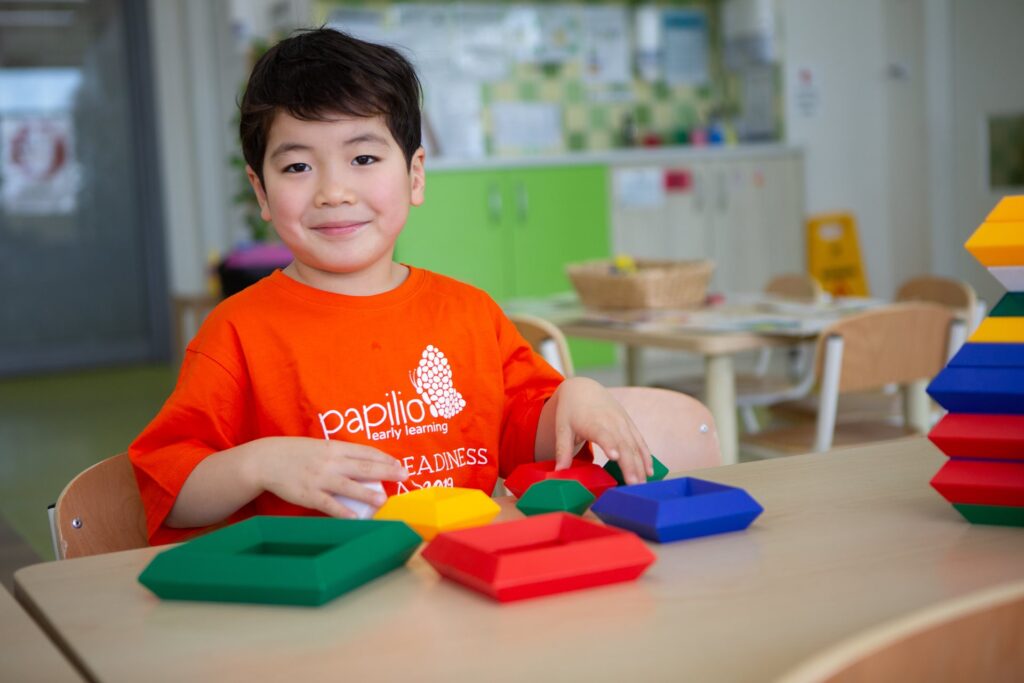
Is Your Child Ready for School? The 5 Key Skills That Matter Most
A supportive guide for families with children aged 3–5 years.
If you’ve ever found yourself Googling “What should my child know before starting school?”, you’re not alone. As the start of school draws closer, it’s natural to wonder whether your child is ready—and how you can best support them.
At Papilio Early Learning, we believe school readiness is about more than just academic knowledge. It’s about helping children feel secure, capable, and confident as they take that exciting next step.
So what does being school-ready really look like? Here are five key skill areas that make a meaningful difference in helping children start school with confidence.

Dance Like Nobody’s Watching: How Movement Nurtures Confidence in Young Children
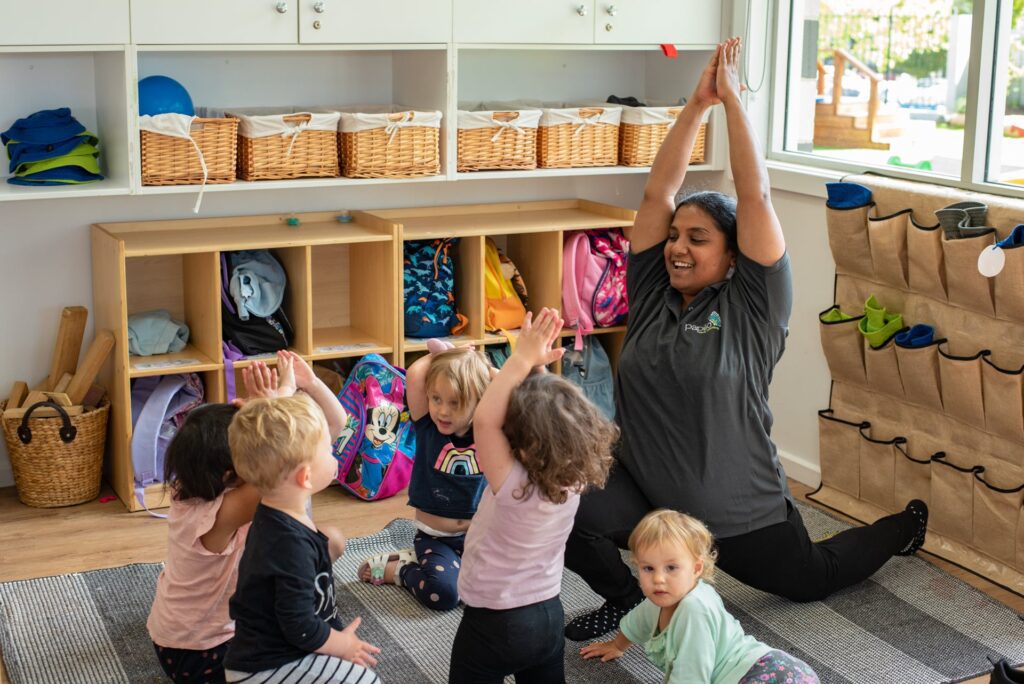
Little Bodies, Big Energy: How Papilio Supports Movement and Physical Development
FREE MOVEMENT MOMENTS DOWNLOAD! If your toddler seems to have boundless energy or your preschooler moves like they’re auditioning for a gymnastics show – you’re in good company.
At Papilio Early Learning, we understand that movement is more than just a way for young children to burn off steam – it’s a vital part of how they grow, learn, and build confidence. That’s why we’ve created a free Movement Moments cheat sheet for parents – an easy-to-use printable with quick, low-prep ideas you can pop on the fridge to support your child’s development at home. You’ll find the download further down in this post.
From baby steps to bold leaps, every wiggle and wobble helps your child develop coordination, strength, and essential brain connections.
Building Emotionally Resilient Children: How Papilio Supports Mental Health in the Early Years
Whether it’s a quiet cuddle at drop-off, a big smile after making a new friend, or a moment of pride as your child says, “I did it!” – early childhood is full of big feelings.
At Papilio Early Learning, we see these everyday moments for what they truly are: powerful opportunities to support each child’s emotional development. That’s why nurturing mental health and wellbeing is woven into everything we do – from our curriculum, to our classrooms, to the caring relationships we build every day.
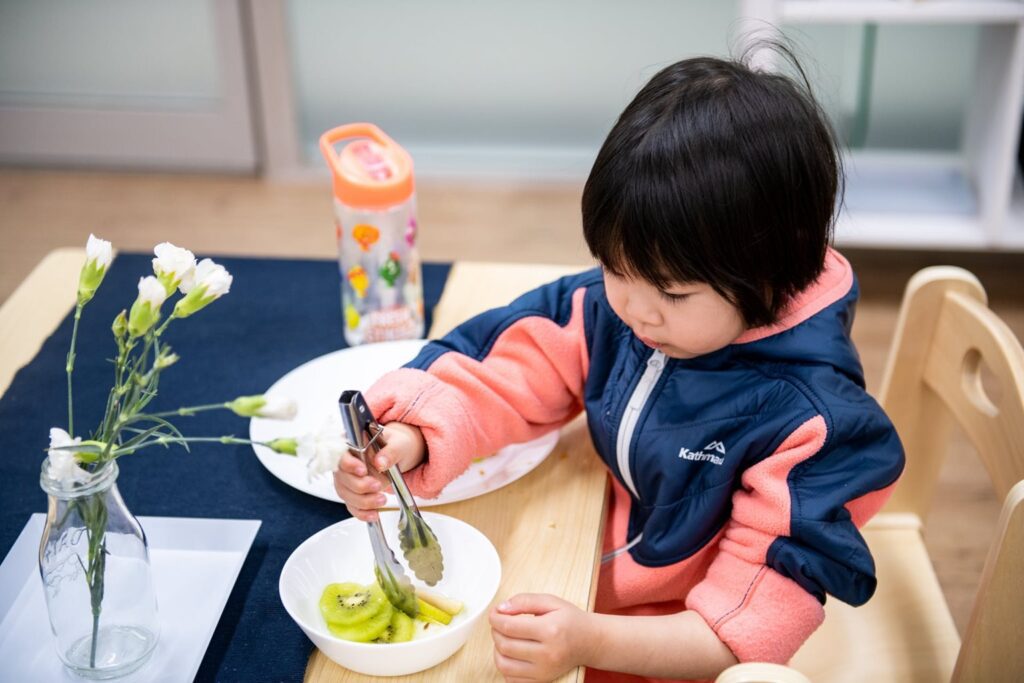
Healthy Habits Start Early: How Papilio Nurtures Your Child’s Wellbeing
Celebrating World Health Day – 7 April
At Papilio Early Learning, we know that a child’s wellbeing is the foundation for lifelong learning. That’s why, in honour of World Health Day (7 April), we’re celebrating the small but meaningful ways our educators help children build healthy habits every single day.
Through nourishing meals, joyful movement, and emotional support, we nurture the whole child—because a healthy child is a happy, curious learner.
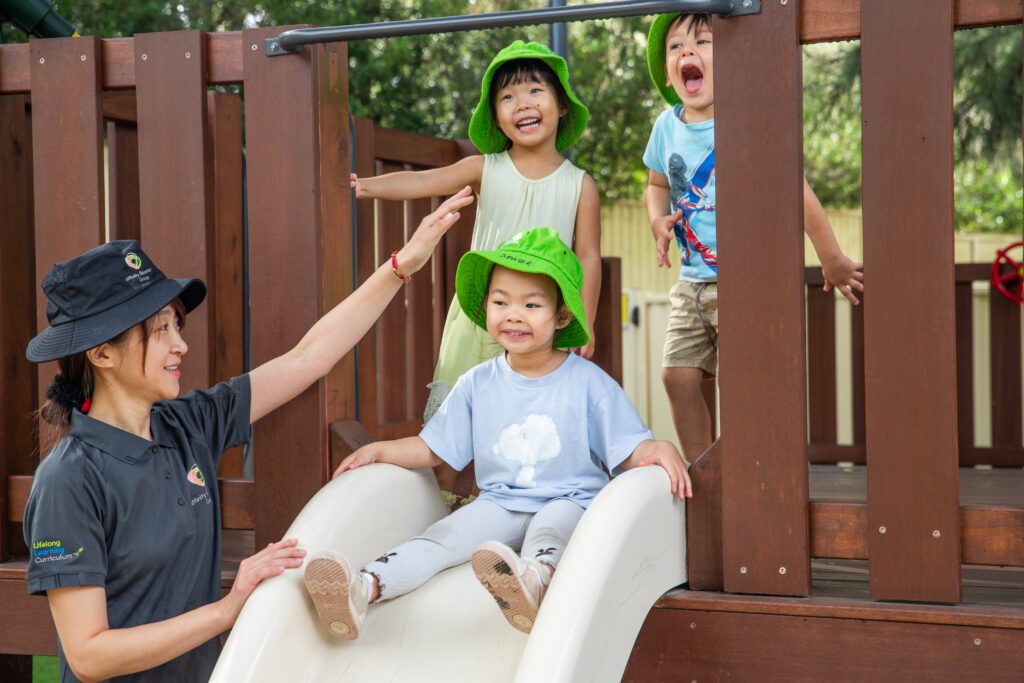
Helping Children Build Social Skills for Academic Success
Ever wondered how friendships and social skills impact your child’s learning? Research shows that strong social-emotional development in early childhood directly influences academic achievement, emotional resilience, and long-term success. At Papilio Early Learning, we focus on fostering communication, collaboration, and confidence – skills that lay the groundwork for cognitive development and school readiness.
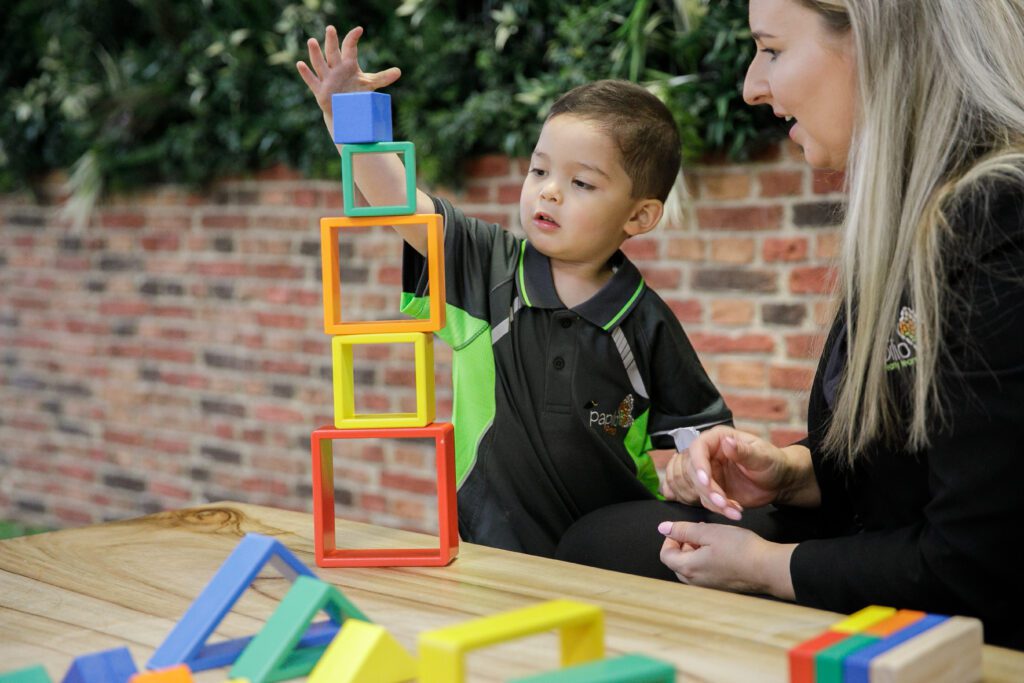
Emotional Confidence in Early Childhood: How It Drives Academic Success in the First Five Years
The first five years of life are critical for laying the foundation for a child’s future success – not only socially and emotionally, but academically as well. During this time, children experience remarkable growth in their ability to understand, express, and regulate emotions, forming what we call emotional confidence. But what exactly is emotional confidence, and why does it matter so much for a child’s academic journey? At Papilio Early Learning, we believe emotional confidence is essential for unlocking a child’s full potential. Guided by the Early Years Learning Framework (EYLF) and our advanced Lifelong Learning Curriculum, we focus on developing emotional confidence alongside academic skills to set children up for long-term success.
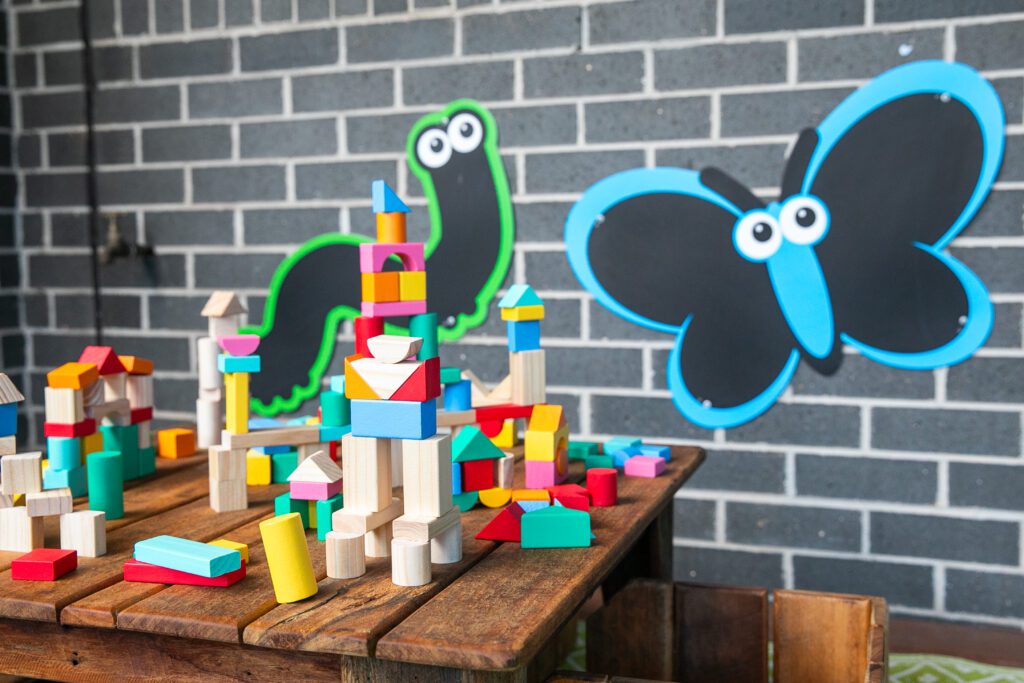
The Best Educational Toys for Babies, Toddlers, and Preschoolers: Inspire Growth Through Play
Choosing the right toys for your child can feel like a big decision. You want something fun and engaging, but also meaningful – something that helps your little one grow. At Papilio Early Learning, we understand how important play is for a child’s development.
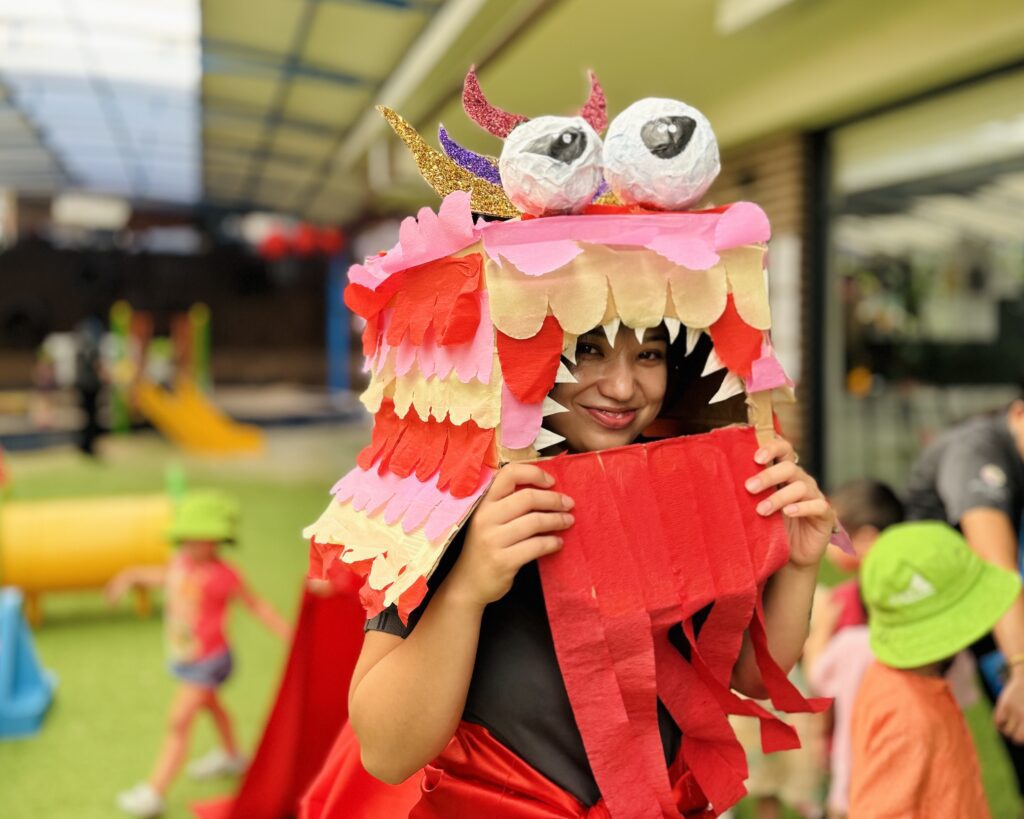
How Learning About Different Cultures Boosts Child Development
At Papilio Early Learning, we believe that exposing children to a wide range of cultures and languages is essential for their development. Research shows that when children engage with different cultures, they build cognitive, social, and emotional skills that prepare them for a diverse world. Through immersive experiences – like celebrating Diwali and Lunar New Year and learning about First Nations culture through our partnership with Wandana Aboriginal Education – Papilio centres provide rich opportunities for cultural exploration. Here’s how child development and diversity are intertwined and how Papilio’s approach supports holistic growth.